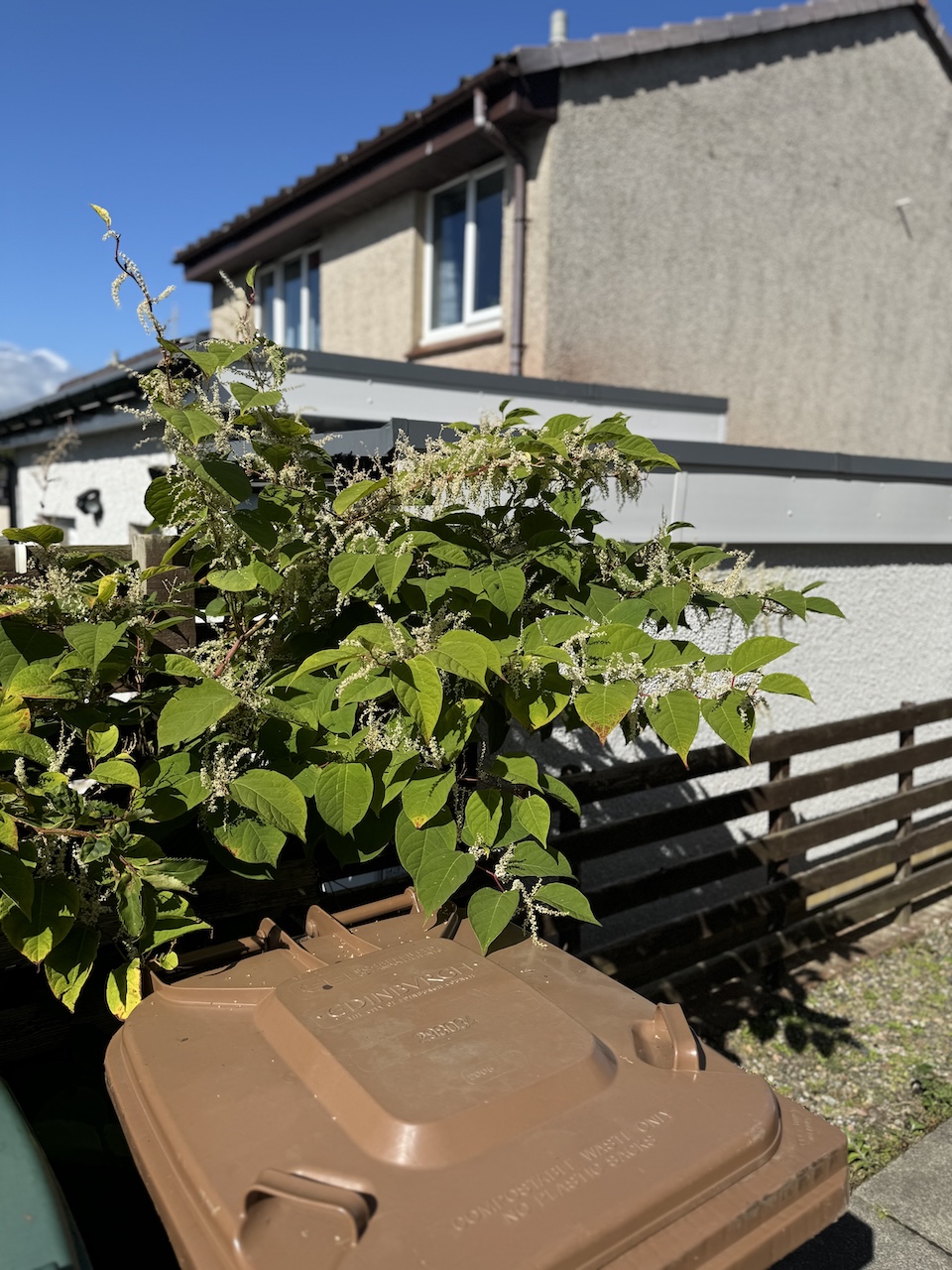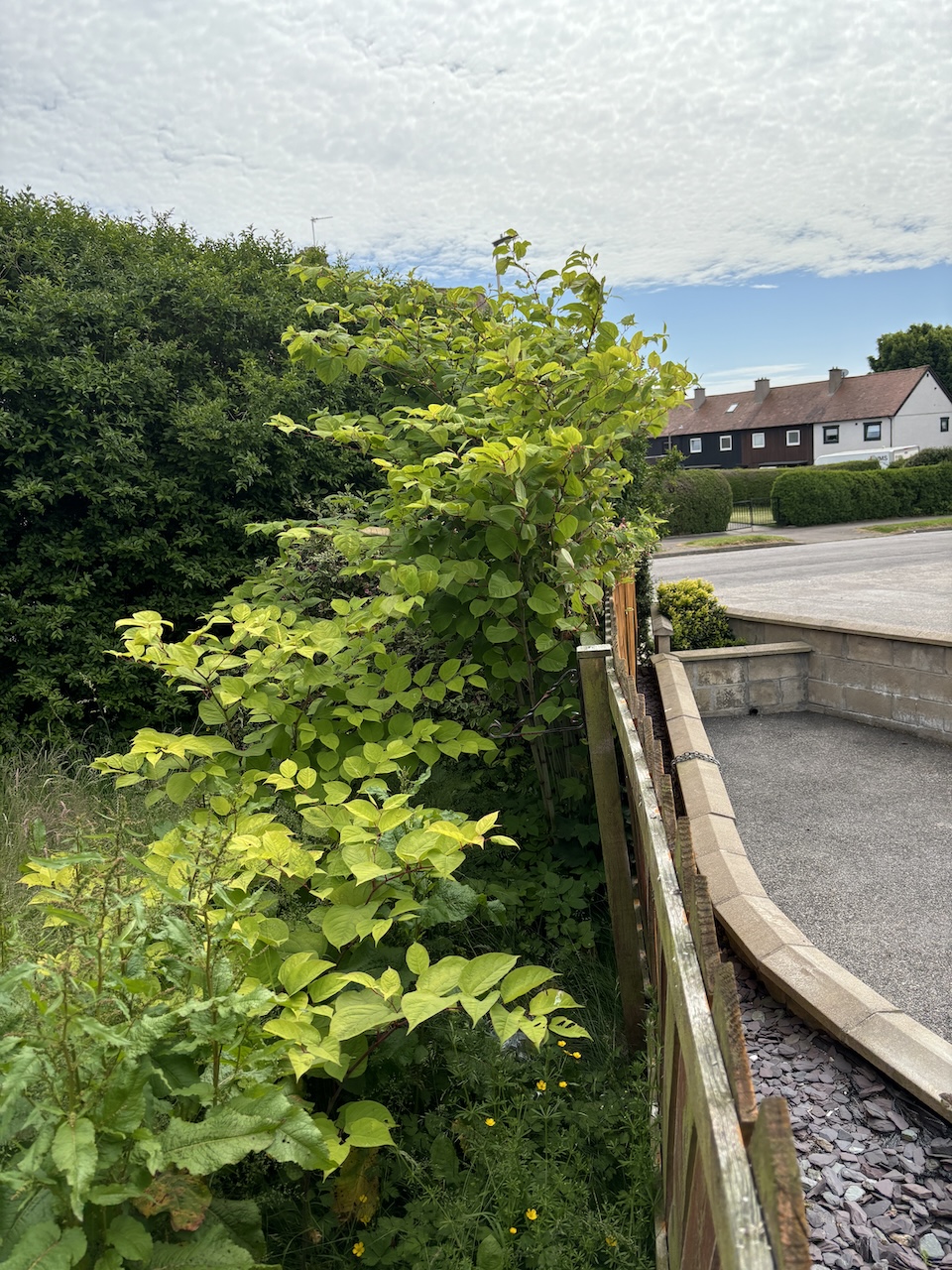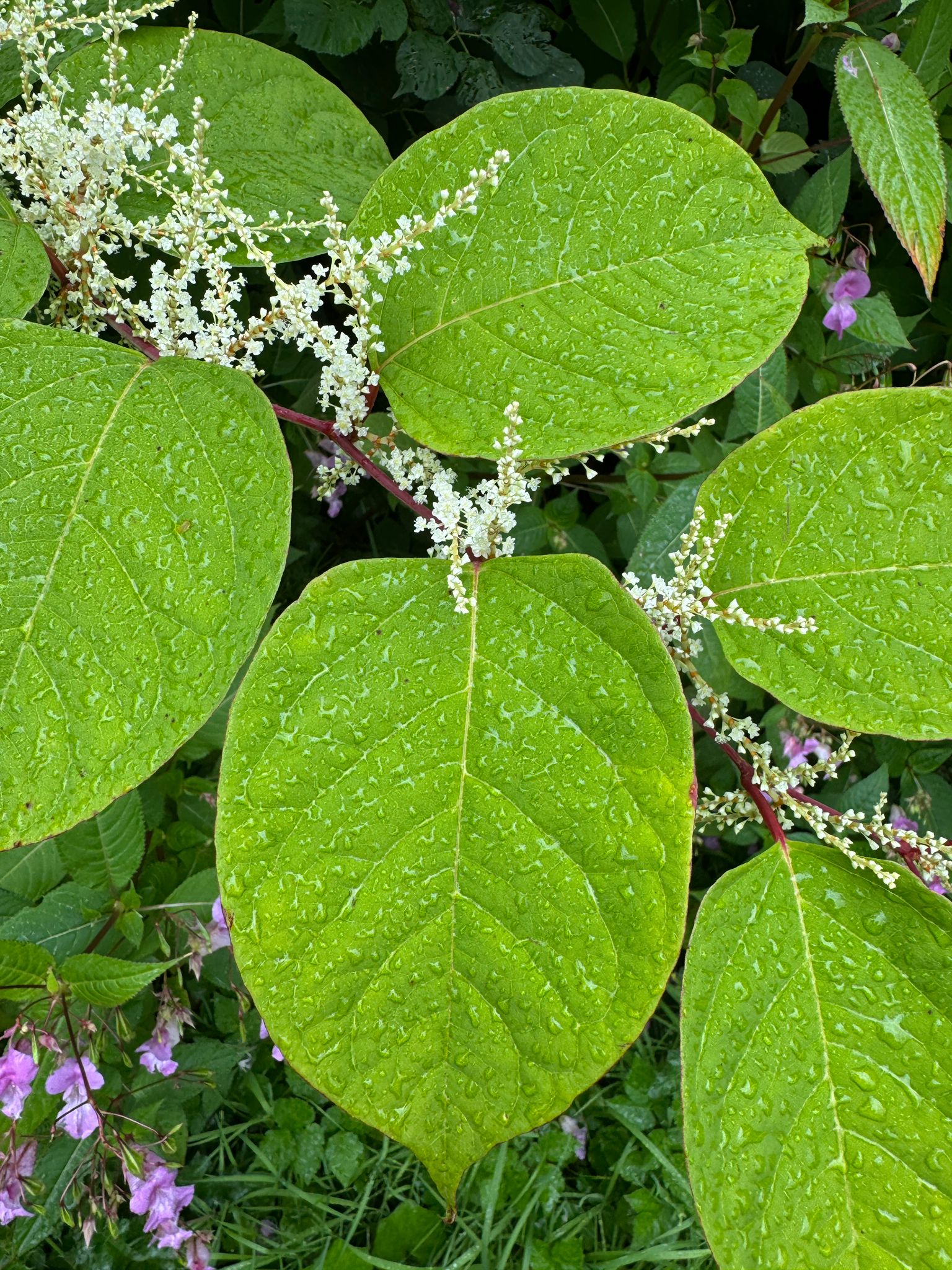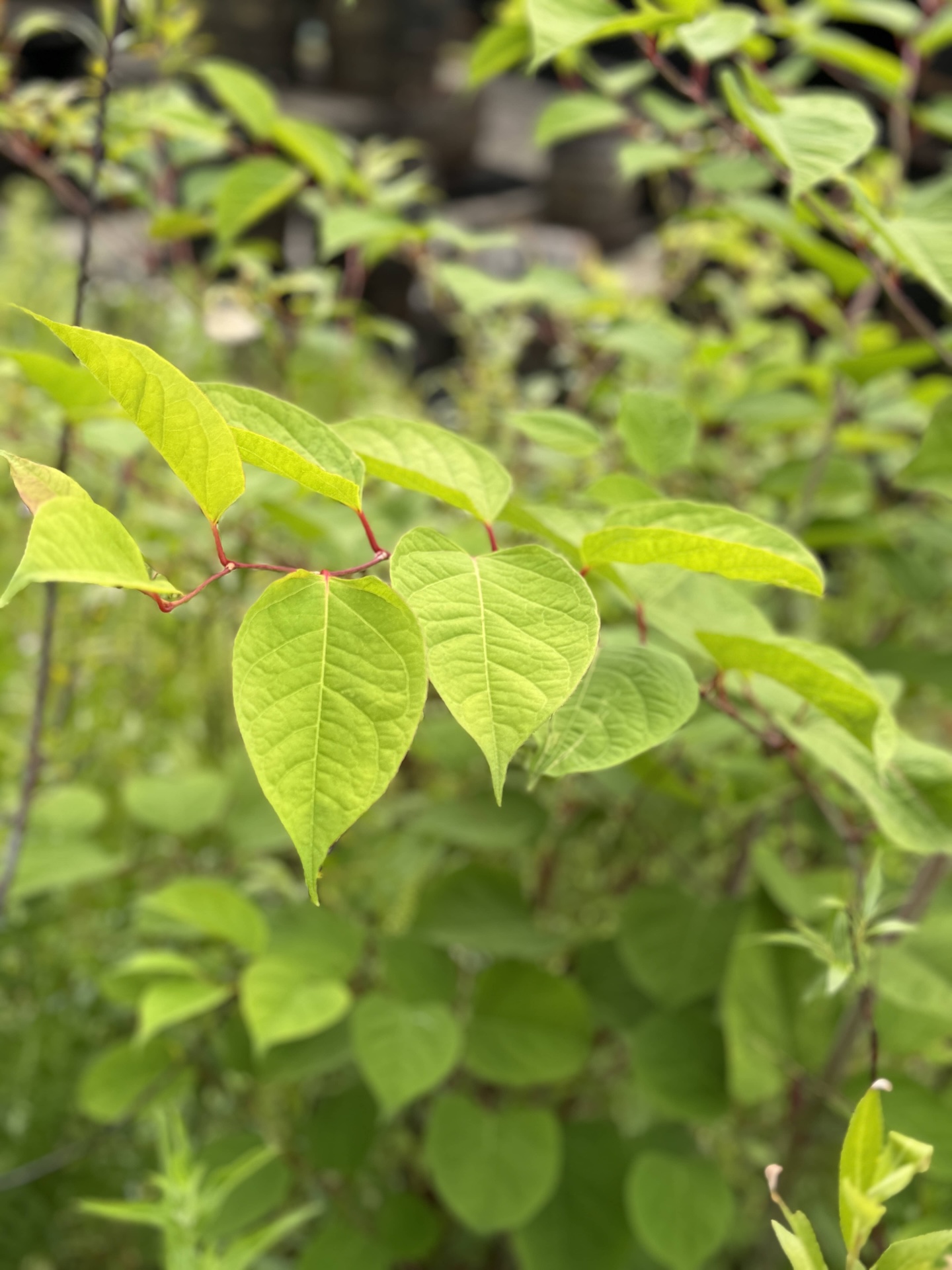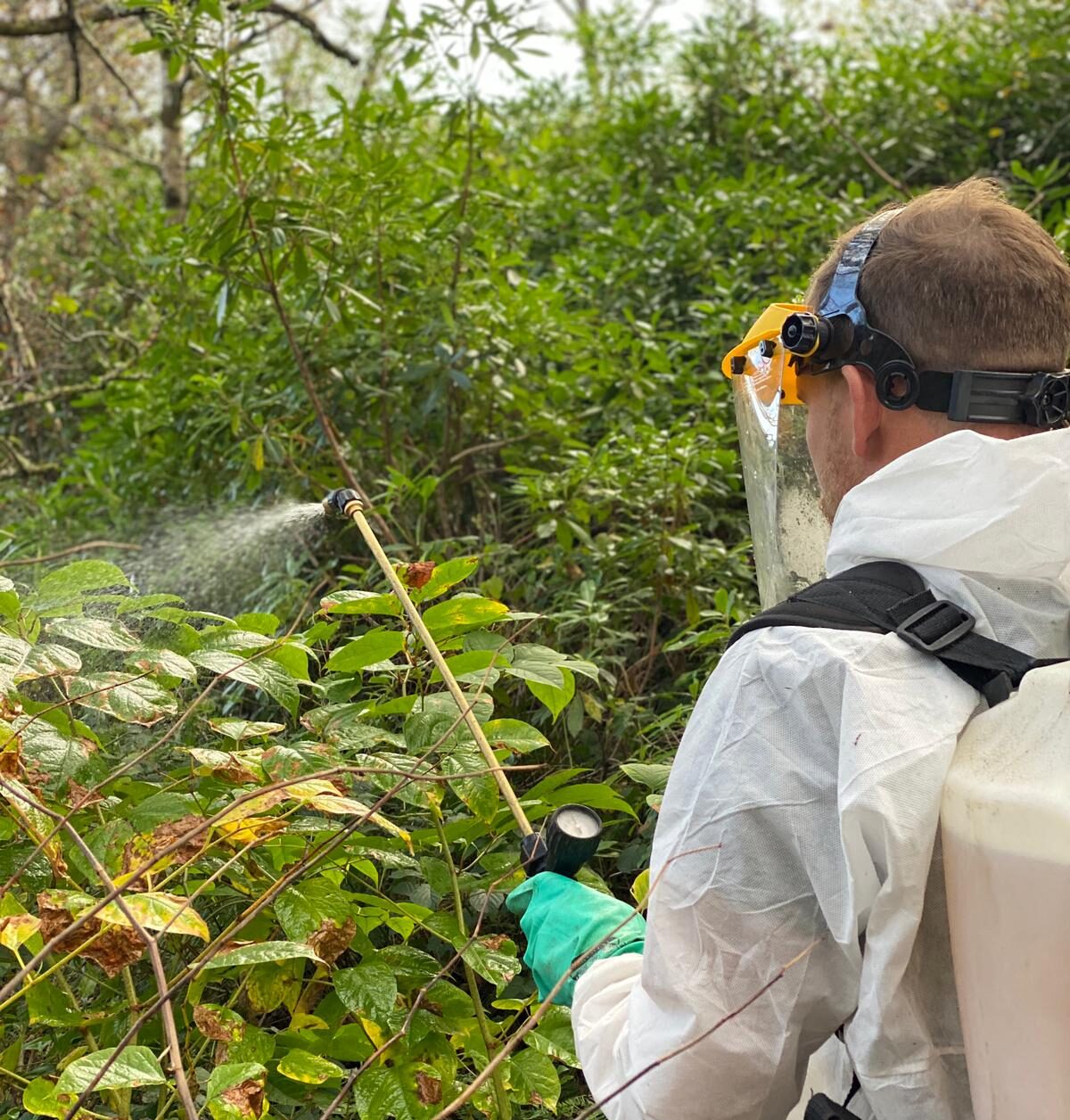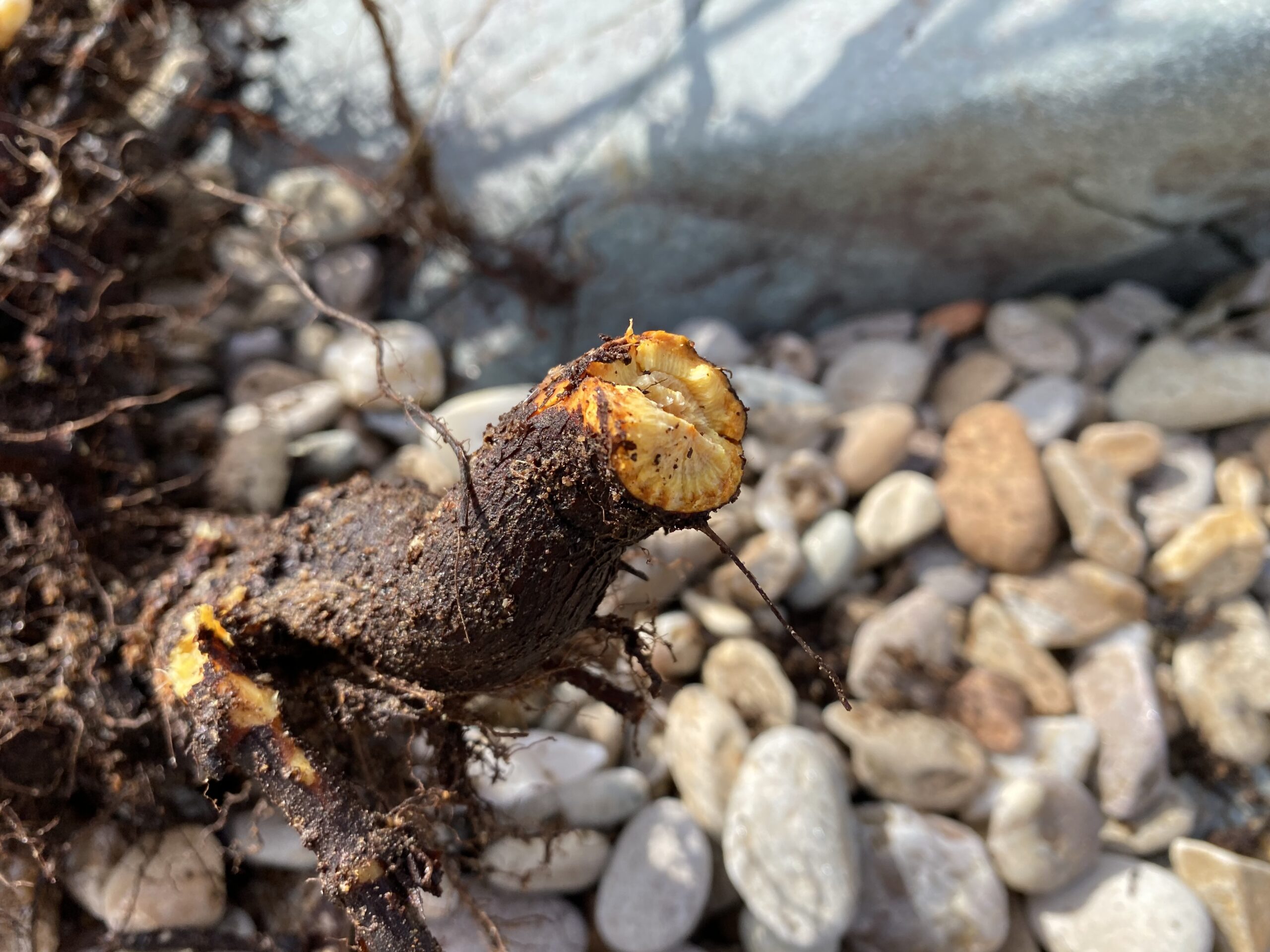Japanese Knotweed
Think you might have Japanese Knotweed growing on your property? We can help.
Japanese Knotweed - Key Facts
Japanese Knotweed poses serious threats as a highly invasive species. Ignoring its presence can potentially lead to property damage, fines and legal consequences.
Meanwhile, taking proactive measures by detecting Japanese Knotweed early and initiating treatment can significantly reduce removal costs.
What is Japanese Knotweed?
Japanese Knotweed is an aggressive and invasive plant known for its rapid growth and extensive root system. Its roots can reach up to 7 metres horizontally and 3 metres deep, causing significant damage to properties, infrastructure, and ecosystems.
It is illegal to allow this plant to grow in the wild, and property owners may face legal consequences if it spreads to neighbouring properties.
What Are The Origins of Japanese Knotweed?
Japanese Knotweed (Reynoutria japonica) originates from Japan, where it grows on volcanic slopes. The harsh climate, native fungi, and insects keep it under control in its natural environment.
Introduced to the UK in the 1850s as an ornamental plant, its lack of natural predators has allowed it to spread rapidly across the country.
How Does Japanese Knotweed Spread?
Japanese Knotweed spreads through tiny fragments of its roots or rhizomes, which can grow into new plants. This ability, combined with a lack of natural control, has led to its widespread colonisation in the UK.
Why is Japanese Knotweed a Problem in the UK?
Classified as an invasive species under UK law, Japanese Knotweed can cause severe structural damage to buildings, significantly reducing property value. Its ability to grow from even the smallest root fragments makes it notoriously hard to eradicate. Professional treatment plans are essential to ensure successful removal and prevent regrowth.
Issues Caused by Japanese Knotweed
How Does Japanese Knotweed Affect Gardens?
Although not harmful to humans, Japanese Knotweed’s invasive roots can damage hard surfaces like concrete, tarmac, and brick walls. It can grow up to 10cm per day in ideal conditions.
Attempting to remove it yourself often worsens the problem, making professional intervention essential.
Can Japanese Knotweed Penetrate Concrete?
Yes, it can exploit weaknesses and cracks in concrete and other structures, undermining their integrity and causing significant damage.
Can Japanese Knotweed Damage Buildings?
Japanese Knotweed’s rapid growth can damage building structures by targeting weak points such as cracks in masonry and foundations.
It is also known to cause damage to tarmac and paving.
Can Japanese Knotweed Affect Mortgages?
Properties affected by Japanese Knotweed may face difficulties with mortgage approvals.
Lenders often require professional management plans with guarantees for successful control.
Declaring the presence of Japanese Knotweed in your home report is a legal requirement.
Identification of Japanese Knotweed Throughout the Year
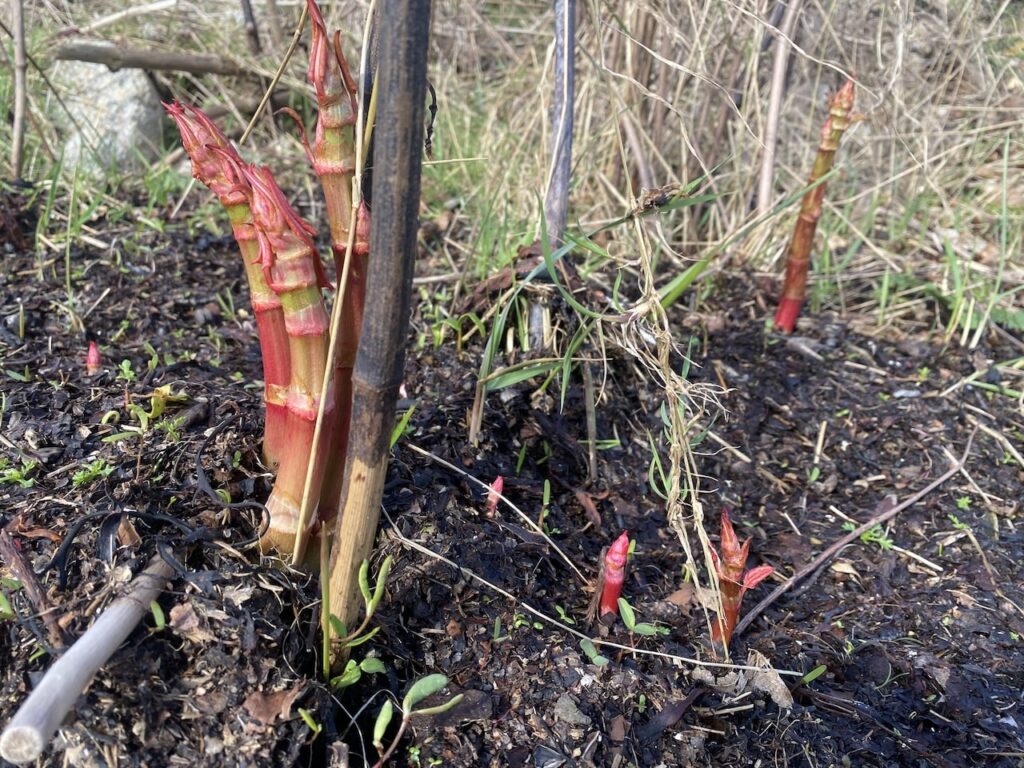
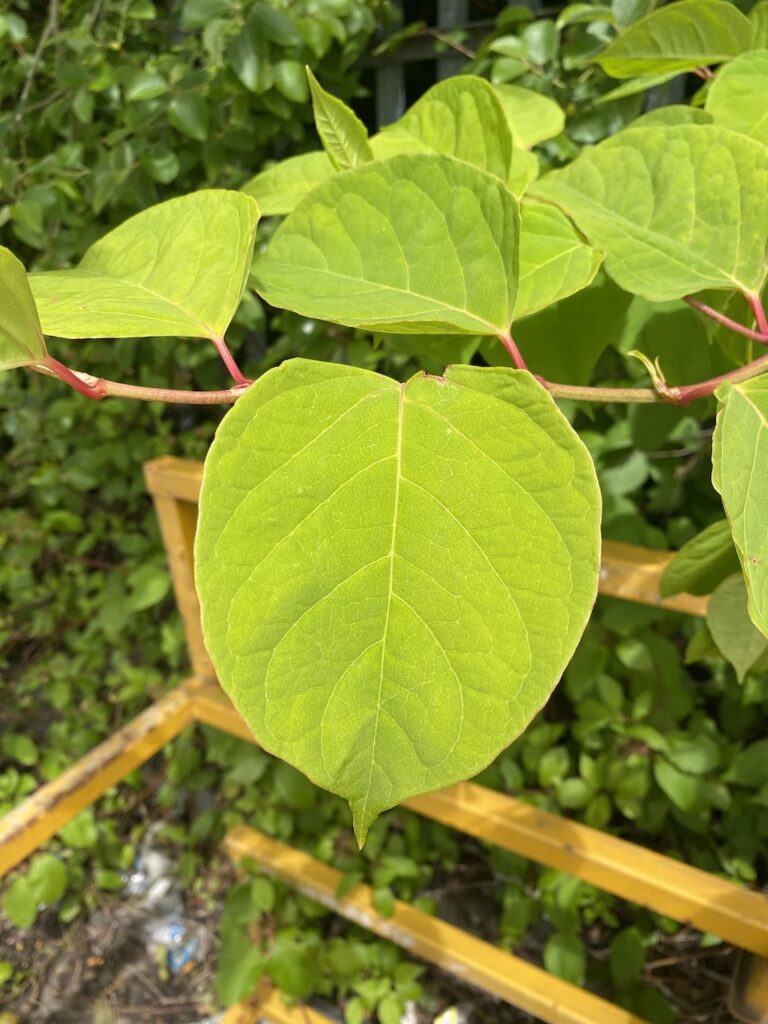
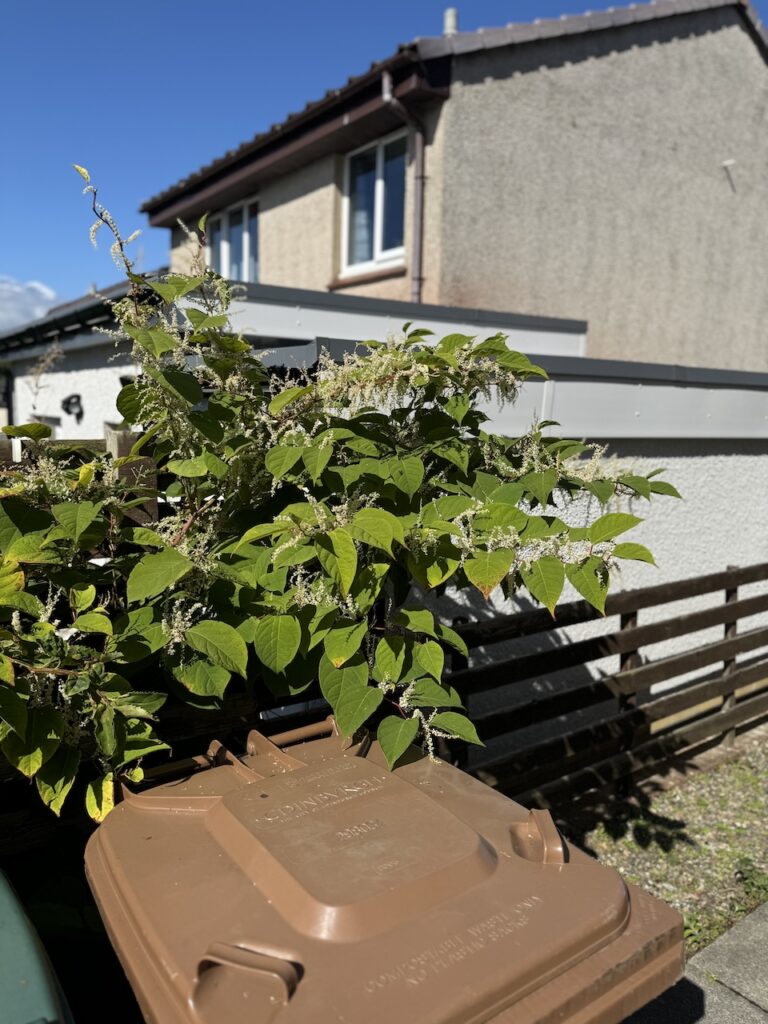
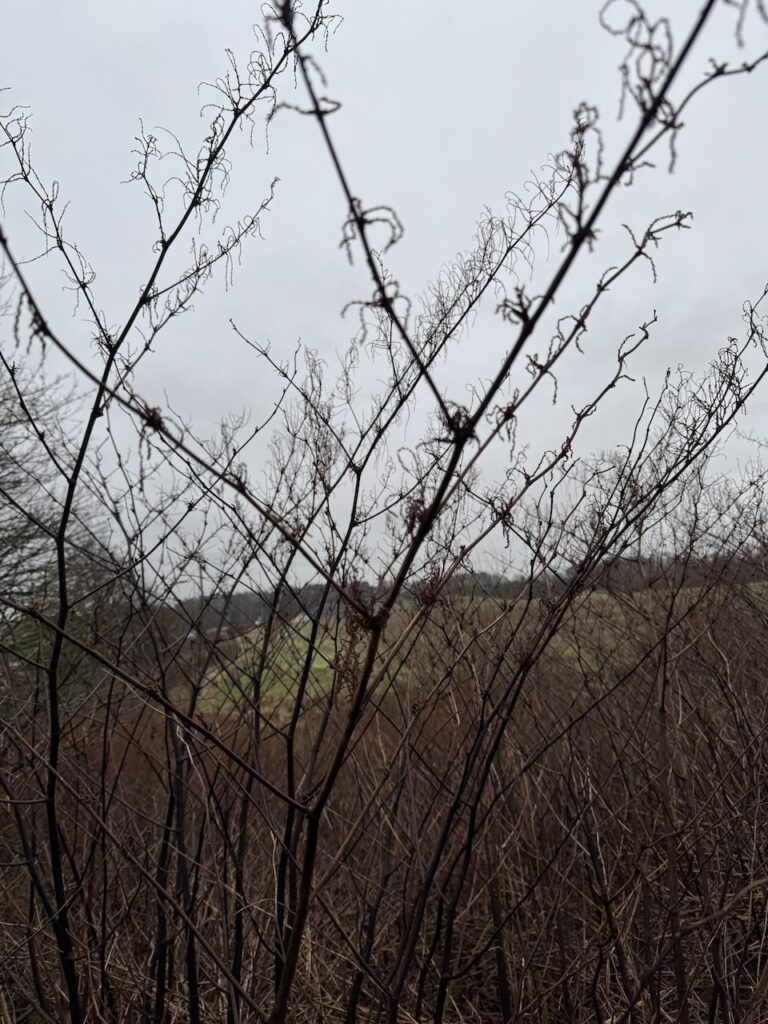
What Does Japanese Knotweed Look Like?
- Spring: Small red shoots resembling asparagus.
- Summer: Hollow bamboo-like canes with vibrant green, shield-shaped leaves.
- Autumn: White flower clusters up to 10cm long, dying back to reveal dead, brassy canes.
- Winter: Dark brown, bare stems and dead, curled flowers. Hollow canes remain visible above ground.
Detailed Japanese Knotweed Plant Characteristics
Stems
Japanese Knotweed stems are predominantly hollow and bamboo-like, with a green appearance and red/purple speckles.
Leaves alternate along the stem in a zig-zag pattern.
Leaves
During summer, Japanese Knotweed leaves are lush green and heart- or spade-shaped, growing to a pointed tip.
They can reach up to 20cm in length.
Flowers
Japanese Knotweed flowers bloom between late summer and early autumn (August to September).
They appear as white or cream-coloured clusters, measuring up to 10cm long.
Rhizomes (Roots)
The rhizomes of Japanese Knotweed have a dark brown exterior and an orange/yellow core.
Fresh rhizomes are brittle and snap easily. These extensive underground systems contribute significantly to the plant’s invasive nature.
If you think you might have Japanese Knotweed on your property, send us a photo and we can help identify and advise.
Treatment and Control of Japanese Knotweed
How Is Japanese Knotweed Controlled?
Japanese Knotweed can be managed by various methods including herbicide treatments, excavation, off-site disposal or a combination of these. Relocation through onsite containment/encapsulation and burial is another option. These methods require professional expertise to ensure long-term success
Take a look at our process for more information on these management options.
How Can I Get Rid of Japanese Knotweed?
Do not attempt to remove Japanese Knotweed yourself. Professional services are essential to ensure the plant is effectively treated and removed.
Book a survey today with JBB Knotweed Solutions to take the first step towards a Japanese Knotweed-free property.
JBB Knotweed Solutions are experts for the identification, management and eradication of invasive weeds including:
Explore Our Japanese Knotweed Resources
